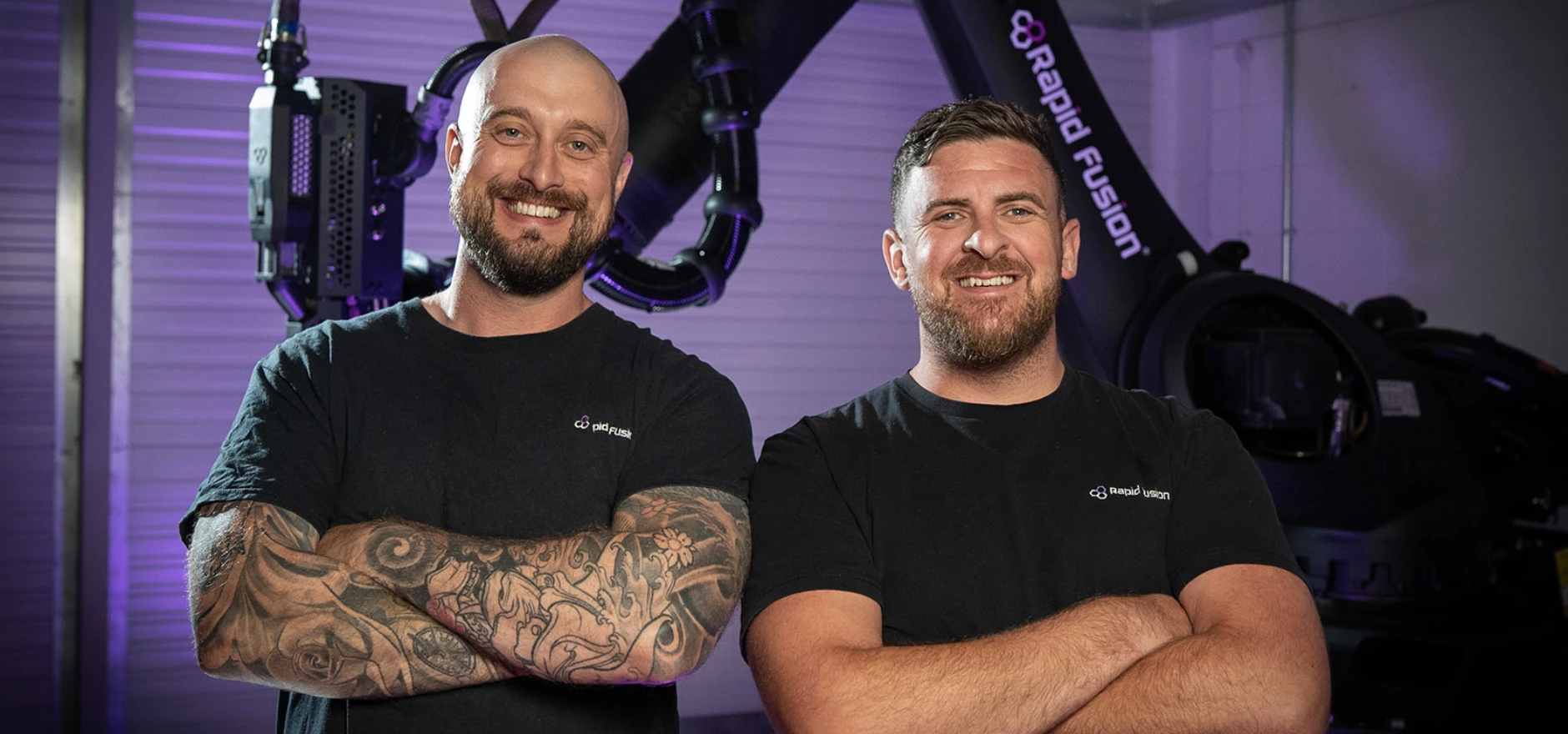
3D printing steers smarter ship design
An engineering group is advancing maritime design with cutting-edge technology.
Exeter’s Rapid Fusion is leading the manufacturing element of a £700,000 vessel transformation project in partnership with Compute Maritime, BYD Naval Architects, Siemens Digital Industries Software and the University of Southampton.
The initiative, part of the Government-backed Clean Maritime Demonstration Competition, aims to revolutionise vessel design and production using generative AI and large-format additive manufacturing.
Known as GenDSOM, bosses say the project seeks to shorten the design-to-manufacturing cycle by embedding AI-driven intelligence into modern design processes.
They add that simulation, optimisation and validation against real-world manufacturing constraints will inform the development of high-performing solutions.
Martin Jewell, chief technical officer at Rapid Fusion, said: “Additive manufacturing has expanded design freedoms and is rapidly gaining traction for both small components and large structures, including hull forms, in the world of maritime.
“Yet scalability remains constrained.
“GenDSOM is going to adopt a modular strategy, breaking designs into manufacturable subcomponents compatible with both traditional and AM processes.
“Our manufacturing-aware approach ensures designs remains manufacturable while integrating constraints, building envelope limits, support structures, tolerance stacking and material compatibility for instance.
“All of this will ensure innovative, efficient, and production-ready solutions, while enabling decarbonisation across the design-to-manufacturing lifecycle.”
Shahroz Khan, chief executive of Compute Maritime, a London-based deep-tech company, added: “Confronted by multifaceted challenges, the maritime industry urgently requires truly evolved, smart design frameworks that balance sustainability with operational and economic viability.
“The transformation of ship design is no longer optional – it is a critical survival strategy in an industry historically anchored in tradition.
“That’s why this project is so important, and we firmly believe that through the power of NeuralShipper (our generative AI copilot) and the expertise of our consortium partners we can achieve a ten per cent reduction in design costs, 20 per cent faster design cycles, and a 50 per cent increase in overall design efficiency.
“GenDSOM responds directly to the UK’s 2025 Maritime Decarbonisation Strategy, which targets emissions reductions of 30 per cent by 2030 and 80 per cent by 2040 for domestic maritime.”
The Compute Maritime team
A crew transfer vessel (CTV), supplied by BYD Naval Architects, will serve as the test case, with hulls and hydrofoils produced using Rapid Fusion’s Apollo robotic 3D printing system.
Apollo, a turnkey large-format additive manufacturing solution, can print hundreds of engineering-grade polymers at speeds nearly 200 times faster than conventional FDM systems.
The process also offers significant cost savings using polymer pellets instead of filament.
Jami Buckley, chief executive of BYD Naval Architects, added: “GenDSOM will have a unique ability to generate solutions that would otherwise be difficult, if not impossible, for designers relying solely on domain expertise or incomplete problem definitions.
“Such scenarios often arise in specialised projects adopting next-generation propulsion technologies or alternative fuels.”
Dimitri Ponkratov, marine director at Siemens Digital Industries Software, added: “This project represents a new leap within maritime design.
“Bringing all the digital elements within one loop will unlock a new paradigm of convergence, where design, performance, and manufacturability evolve simultaneously, not sequentially.
“We are excited to partner with the other members, especially Rapid Fusion, to bring manufacturing capability into the preliminary stage of design.
“This ensures designs are developed with awareness of the constraints that typically only emerge later in the detailed stage.”
Over the next seven months, the consortium will combine expertise across AI, design, simulation, optimisation and manufacturing, supported by HP Z Workstations’ compute power.
The project is funded through the UK Shipping Office for Reducing Emissions programme and Innovate UK, underlining the Government’s commitment to innovation in clean maritime technology.
Tahsin Tezdogan, professor of marine hydrodynamics in the department of civil, maritime and environmental engineering at the University of Southampton, added: “Whilst retrofitting with emission-reduction technologies provides incremental benefits, the largest fuel savings come from optimising vessel form and components.
“Historically, vessel design progress was constrained by limited tools and evaluation methods.
“Today, intelligent tools like NeuralShipper can generate highly efficient, unconventional hull shapes, supported by advanced simulations that accurately assess performance.
“GenDSOM therefore aims to address the core challenge of designing more efficient vessels.”
Looking to promote your product/service to SME businesses in your region? Find out how Bdaily can help →
Enjoy the read? Get Bdaily delivered.
Sign up to receive our popular morning National email for free.








 Raising the bar to boost North East growth
Raising the bar to boost North East growth
 Navigating the messy middle of business growth
Navigating the messy middle of business growth
 We must make it easier to hire young people
We must make it easier to hire young people
 Why community-based care is key to NHS' future
Why community-based care is key to NHS' future
 Culture, confidence and creativity in the North East
Culture, confidence and creativity in the North East
 Putting in the groundwork to boost skills
Putting in the groundwork to boost skills
 £100,000 milestone drives forward STEM work
£100,000 milestone drives forward STEM work
 Restoring confidence for the economic road ahead
Restoring confidence for the economic road ahead
 Ready to scale? Buy-and-build offers opportunity
Ready to scale? Buy-and-build offers opportunity
 When will our regional economy grow?
When will our regional economy grow?
 Creating a thriving North East construction sector
Creating a thriving North East construction sector
 Why investors are still backing the North East
Why investors are still backing the North East